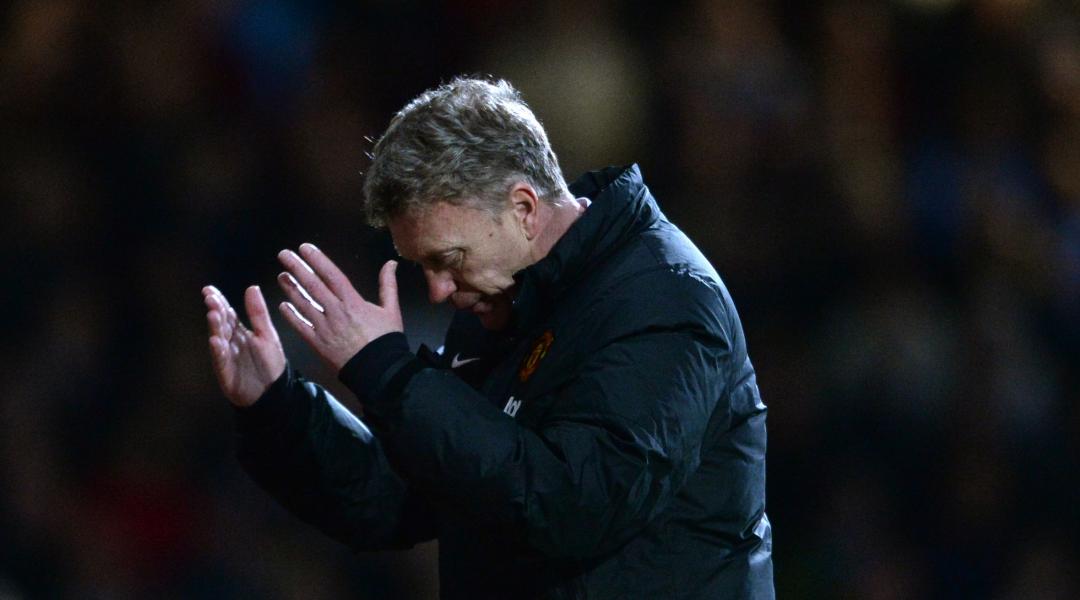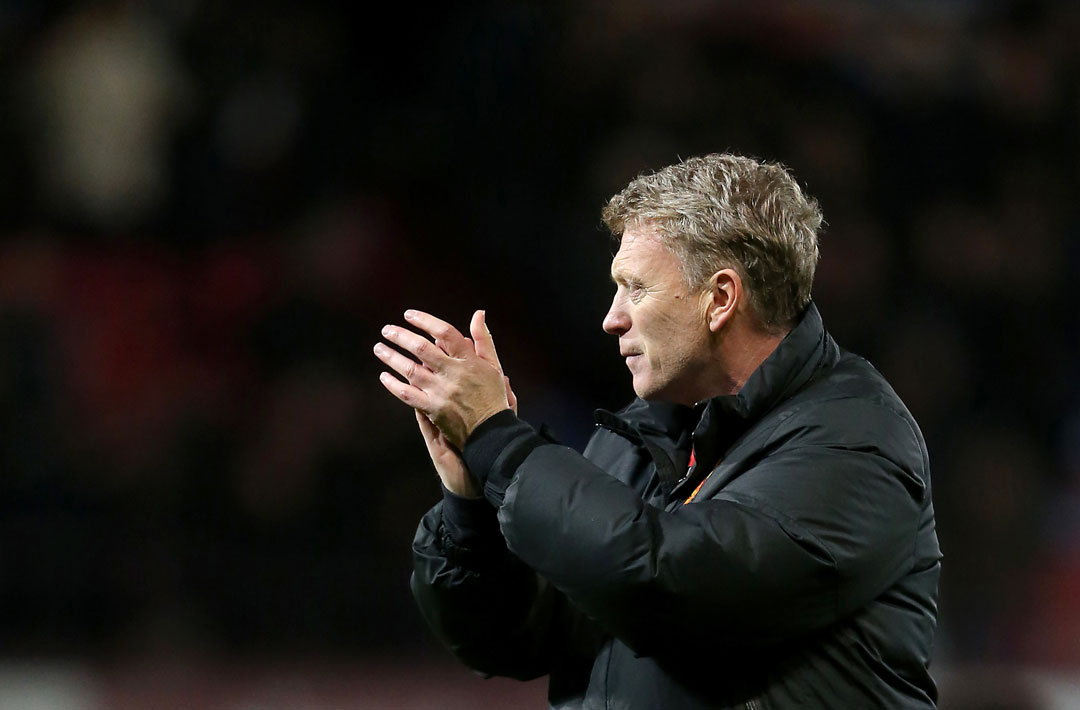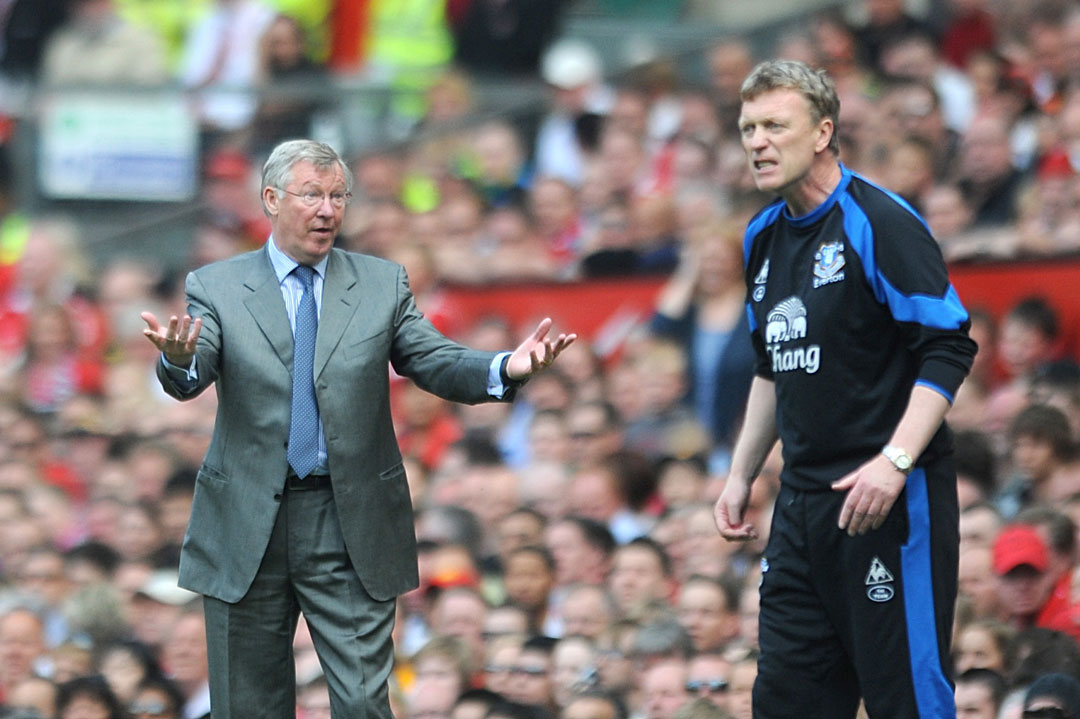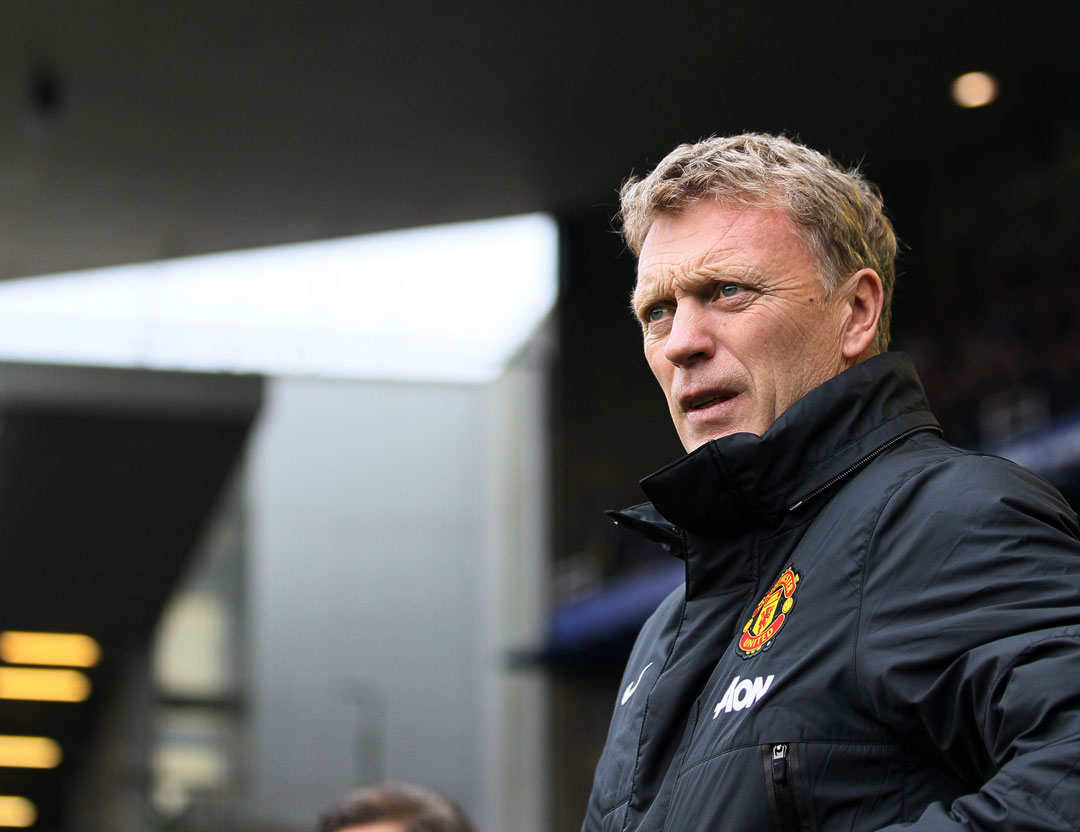What next for David Moyes after his year at the Damned United?
James Corbett assesses the Scot's Manchester United downfall, and ponders whether, like Brian Clough after Leeds, the Scot may struggle to be trusted with an elite club again...

A football dynasty ends. The defining figure in a club’s history moves on. It is the time for the country’s brightest managerial talent. He assumes control of the reigning league champions. Uncertainty permeates a successful, but ageing squad, "A side," the new manager will reflect "on its last legs."
The team embarks on a series of disastrous results. Supporters are restive. Dressing room unhappiness leaks to the press. Floundering in the league, the board cut their losses and prematurely sack the new manager. It was, recalls the veteran sportswriter James Lawton, "without doubt one of the most dramatic of sporting tales."
"Little did I realise," reflects the departed man, "The extent of the dislike and resentment – if not downright hatred – waiting for me." Forty years on, Brian Clough’s 44-day reign as Leeds United manager remains a salutatory tale, worth revisiting yet again. Immortalised in a best-selling novel and movie, the bare bones of the story have seemingly been played out once more, this time on the other side of the Pennines where David Moyes has been sacked as Manchester United manager. He lasted 252 days longer than Clough as Don Revie’s successor, but one suspects we’ll also be talking about his ill-fated reign 40 years from now.
Just 42 weeks passed between Moyes’s first and last day in charge of Manchester United. In that time the reputation of the most outstanding British manager of his generation has been universally trashed. After Sunday’s defeat to Everton, Jamie Carragher, recalling his own Liverpool playing days, announced scathingly: "I wish I played against a Manchester United team like that." On social media supporters and journalists united in a mocking phalanx to describe Moyes as ‘clueless’, ‘terrible’, ‘inflexible’, ‘out of his depth’, ‘the biggest fool in Manchester’.
No one would have been more conscious of David Moyes’s shortcomings as Manchester United manager than Moyes himself. But Goodison is not Old Trafford, where trophies are demanded annually.
The small miracles at Everton – turning relegation fodder into a top-six outfit despite zero net spend – had seemingly been forgotten, even by many of that club’s fans. One popular Everton fansite denounced him as a ‘fraud’. Sir Alex Ferguson’s ‘chosen one’ was apparently more Brian Cohen than Jesus Christ. Indeed the man whom would-be Labour Party leader Andy Burnham once cited as "a wonderful role model" for leadership, whose "text book would be on my desk as leader" – perhaps even that of 10 Downing Street – is now universally damned as a failure.
Is this just a symptom of the age of social media, where everybody must have an opinion – usually outraged – on everything? Or has something more fundamental happened to Moyes’s career? What went wrong at Old Trafford? And what now lies ahead for him? Will he be a Wilf McGuinness or Frank O’Farrell, the avuncular men given the thankless task of succeeding Matt Busby in the 1970s? Or will he be a Clough, who overcame one of the most wretched failures in football history to achieve unparalleled success elsewhere?
Moyes: a modern-day Clough or McGuinness?
What happened at Old Trafford under Moyes is already subject of thousands of column inches. A Google news search offers 6079 stories. But almost all of this for now remains speculation. What is worth contrasting, however, is what we know of Moyes’s first season at Everton and his difficult 10 months at Manchester United. Both campaigns featured significant and perhaps unrealistic hopes placed on a talented homegrown teenager, mixed transfer records, disappointing cup exits and his teams finishing seventh in the Premier League.
But there the similarities conclude. Moyes ended one of these seasons a hero, the other looking for a new job. Yet by unravelling what we know about his time at Everton we may have a greater understanding of how he approached the United job and ultimately what happened there.
In 2009 Moyes told FourFourTwo it was "a fight" just to establish himself at Goodison at first. "I had to change it from a club that was just surviving," he said. He wanted "a younger football club, a fresher football club." Much of this ‘fighting’ at Everton went on behind the scenes, while in public everything Moyes did seemed inspired. At his unveiling Moyes famously described Everton as "the People’s Club", a moment that instantly became part of Goodison lore, while permanently enraging Liverpool fans.
He recalled later walking into the dressing room for the first time and seeing the scale of his challenge. "David Ginola, Duncan Ferguson and Paul Gascoigne – some of the biggest names in football. They were sitting on the bench, looking for direction. I thought, ‘Jesus Christ. What do I do here?’" Yet for all his self-deprecation about this moment, Moyes was decisive about all three – who were on bloated contracts but contributing little: Gascoigne was released immediately, Ginola dropped from the first-team squad, Ferguson made captain and revitalised.
His first Everton signings were largely unsuccessful, but he had some luck as well. A teenager blessed with genius by the name of Rooney helped Everton finish the 2002/03 season seventh, having occupied a Champions League spot for most of the season; no small feat for a club that had finished in the top 10 just once in the Premier League era.
This isn’t to say there were not grave mistakes: Everton fell to Shrewsbury Town in the FA Cup, arguably the worst result in their history (Shrewsbury were relegated from the Football League that season). The perpetual ‘fight’ to establish himself allegedly brought him into physical conflict with Ferguson; the annus mirabilis was followed up a year later with Everton just a place off relegation.

Although it can be a complicated and political club, at Everton the pressure comes mostly from within Merseyside and the confines of the stadium and training ground. At United it is a global venture, an international news story, a club that needs to sate the expectations of hundreds of millions of fans. Moreover, Moyes took over a moribund, deeply unstable Everton where his initial task was to avoid relegation and breed some stability. At Old Trafford he inherited the league champions and the burden of succeeding the most successful manager in English football history.
"The biggest fool in Manchester"
In short, the need to be strong-minded and hit the ground running was imperative. At United there was no ‘People’s Club’ moment, no brilliantly articulated empathy with his new employers, but Moyes was decisive. On his first day he would have walked into the Carrington dressing room and, amid the winners and bona fide stars, seen a squad that needed revitalising – underperforming players like Anderson and Nani, but also a permeating unhappiness among stellar performers like Rio Ferdinand, Wayne Rooney and Nemanja Vidic. Yet it was not these that he purged, but Ferguson’s coaching staff: Eric Steele, Mike Phelan and Rene Meulensteen (though efforts were made to keep Meulensteen).
Get FourFourTwo Newsletter
The best features, fun and footballing quizzes, straight to your inbox every week.
This was possibly his biggest mistake. Not only would this have bred uncertainty among players, but in a club that had lost both its long-term manager and CEO, David Gill, such a break with continuity and inside knowledge seems short-sighted and, perhaps, arrogant.
This error was compounded when, given significant transfer funds for the first time in his career, there followed an excruciating three-month odyssey to buy Leighton Baines and Marouane Fellaini for below market value from his former club. The latter was belatedly acquired on deadline day at an inflated price. As in his first days at Everton he possessed an extravagantly talented teenager to mitigate against poor dealings, but Adnan Januzaj is no Rooney.
At Goodison his main failing was being too cautious on the big occasion, surrendering: the 2009 FA Cup Final, the 2012 FA Cup semi final, European knockout matches, at Anfield, Old Trafford, Stamford Bridge and Arsenal – where he never won an away match in 11 years. Overcoming this at a club that exists for the big occasions was fundamental. But in the league he won just one of 12 games against the six teams above United, was knocked out at Old Trafford by lesser teams in the domestic cups, and stuttered to the Champions League quarter finals. This was not acceptable.
One of the things that once set him apart as an outstanding young manager was his ability to adapt and change his managerial technique. Some accuse him of aloofness and arrogance, but those who know him say that this is misplaced: it is introspection, self-assessment, the continual journey of improvement.

After the disastrous 2003/04 season at Everton he went on a tour of the USA on which the squad had a sing-song and Moyes asked his backroom staff about what had gone wrong. He recalled: "'Give me it double-barrelled,' I said, and some of them did. That's what you want, isn't it? You don't want people around you telling you you're always right. There were bits I heard where I said to myself: 'Is that right?' I gave them all a chance to have a prod.'"
Moyes listened, evolved his style, and united his divided squad. "He’s continually challenging himself and looking for something else that will help him," his long term Everton assistant Alan Irvine told FFT last summer. "A different way of doing something, a different way of saying something."
No one would have been more conscious of David Moyes’s shortcomings as Manchester United manager than Moyes himself. But Goodison is not Old Trafford, where trophies are demanded annually, and deviation from the success-filled map defined by Ferguson can impact the club’s stock market value by nine-figure sums.
When asked about Moyes, there was a common theme among United’s Golden Generation: time. In February David Beckham, who played alongside him at Preston, acknowledged that there would be a necessary "transitional period". "I think David Moyes is a great manager, but it takes time," he said. Last month Eric Cantona said that his appointment was an acknowledgement of a "long-term project". Roy Keane previously said that he thought Moyes "would get plenty of time" and deserved it.
Yet there exists an unbridgeable gap between this thinking, the need for the new manager to evolve, and the realities of a club owned by the Glazers, where hundreds of millions need to be generated annually to pay back the interest on the mortgage they have borrowed against their so-called investment. Last Sunday's confirmation of United’s failure to qualify for next season’s Champions League came at a cost of around £40 million. By 8am Tuesday, Moyes’s severance package reputedly worth £4.5m was laid out by United’s CEO Ed Woodward. In the nine hours that followed, United’s share price rose by £110m. Such are the realities of modern football.
A workaholic who'll bounce back
In December 1970, when Wilf McGuinness learned he was to be sacked 18 months into his reign as Manchester United, he went in search of a bottle of whisky in the director’s room. Finding only sherry, he drank several glasses and began headbutting the wall. "I was demoralised, heartbroken, horribly hurt," he recalled. "It wasn't so much I got the sack but the way they behaved as people," O'Farrell wrote in his autobiography, of the impersonal way he was summoned to the chairman’s office and dispatched two years later. "I can never forgive them for that – they were nasty beggars." O’Farrell went on to manage Cardiff, Torquay and the Iranian national team.
McGuinness, who was only in his early 30s when he was United boss, managed in Greece and had 30 months in charge of York City. Most of the rest of his career was spent coaching in the lower leagues at places like Bury, where he helped nurture a young Neville Southall.
When he left Leeds in September 1974, Brian Clough appeared the very same evening on the Yorkshire TV magazine programme Calender, where he debated his reign with his predecessor Don Revie and Austin Mitchell. It was an extraordinary TV moment. "Aren't you in a difficult situation, after the argument at Derby, you left Brighton under a cloud and now this with Leeds," pondered Mitchell. "Who's going to touch you with a barge-pole?"
Maybe he had a point. Clough never got another job like Leeds: repeatedly overlooked by England, he came close to managing Everton in the late 1970s, but was considered too controversial or sullied by the Leeds experience for another big club. Instead he found a home at second division Nottingham Forest, where he achieved the impossible, making them League and double European Champions.

One wonders what will happen to Moyes now. A millionaire many times over, it seems unlikely he will be searching for the sherry bottle or need to scrape out a living in football’s nether regions. But will prospective employers consider him ‘a wonderful role model’ for leadership or the ‘biggest fool in Manchester’?
It is hard to imagine him wanting to be out of work for long. He has always been a workaholic; obsessive, intense, passionate. "I can’t lose my drive and my desire," he told me in 2009. "Football’s got to keep driving me on."
Yet there are few examples in English football of managers returning to a proverbial ‘big job’ having failed so publicly in a previous one. Ferguson’s Old Trafford predecessors, Dave Sexton and Ron Atkinson, returned to the First Division with Coventry City and Sheffield Wednesday, but none of the most recent British managers sacked by leading clubs – Roy Evans (Liverpool), Bruce Rioch (Arsenal), Ian Porterfield (Chelsea), Glenn Hoddle (Tottenham), Stuart Pearce (Man City), David O’Leary (Aston Villa) – have returned to club football at a level approaching their previous standard. Only Walter Smith, who was replaced by Moyes at Everton and returned to achieve success at Rangers, is an exception. Even then, however, Smith was arguably guiding a famous club in a lower-profile league.
At a time where gaps between football’s haves and have nots have never been so pronounced, there are plenty of club chairmen who would cast an envious glance at the job done by Moyes at Goodison.
But while precedent may not stand in his favour, at a time where gaps between football’s haves and have nots have never been so pronounced, there are plenty of club chairmen who would cast an envious glance at the job done by Moyes at Goodison. Moneyball management has become a modern sporting cliché, but Moyes is one of the few to have succeeded in this at Everton and the team that has so wowed under Roberto Martinez retains his imprint.
Beneath the workaholic veneer, the real Moyes can be enigmatic. Maybe it’s because he is so focussed on football at the exclusion of everything else. His father, son and brother all work in the game; "My wife understands me," he told FFT with a wry smile in 2009.
One thing that does shine through, however, is his love for his home town of Glasgow and the impression it has made upon him: Drumchapel Amateurs, where he learned; Celtic where he played; Rangers whom he supported as a boy. "Glasgow’s my home and football was what you done," he told FFT, as if it were as fundamental as eating and sleeping. Maybe – whether with Celtic, Rangers or Scotland – this is where we will see Moyes next. Or perhaps a Villa, Newcastle or Sunderland – clubs that have tried and largely failed to emulate the Everton model.
Asked in that 1974 dramatic interview what would happen next, Brian Clough replied to Mitchell’s acerbic question with an insouciant smile. "I think many many people are going to touch me with a barge pole." One suspects the same will be true of David Moyes.
